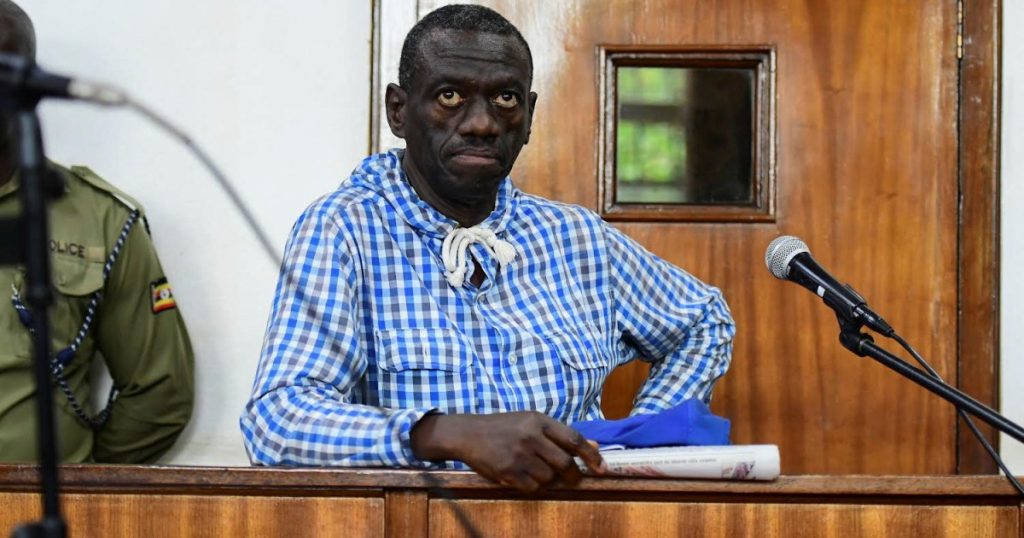The Escalation of Charges Against Kizza Besigye: A Deep Dive into Uganda’s Political Landscape
The recent ruling by a Ugandan military court to try prominent opposition figure Kizza Besigye on charges of treachery has sent shockwaves through the nation’s political landscape. This grave accusation, punishable by the death penalty, significantly escalates the legal battles Besigye faces as the 2026 presidential elections draw near. The charges stem from Besigye’s alleged involvement in soliciting military support from abroad to destabilize national security. This development has sparked widespread concern among human rights organizations and international observers, who view it as a blatant attempt to suppress political dissent and silence a prominent voice of opposition.
Besigye’s political journey has been marked by numerous arrests, assaults, and legal challenges, highlighting the precarious position of opposition figures in Uganda. His sudden disappearance in Nairobi, Kenya, followed by his appearance before a military court in Kampala, raises serious questions about the due process and fairness afforded to him. The subsequent addition of treachery to the charge sheet, coupled with the introduction of a serving army officer as a co-accused, further intensifies the complexity and gravity of the situation. This move has been met with condemnation from international human rights organizations, who argue that Besigye’s abduction and trial violate international law and undermine the principles of fair trial protections.
The case against Besigye unfolds against the backdrop of President Yoweri Museveni’s long and controversial rule. Museveni, who has been in power since 1986, has faced persistent criticism from human rights groups for alleged abuses against political opponents. While he has not yet officially declared his candidacy for the 2026 elections, it is widely anticipated that he will seek another term. This prospect, combined with the lack of a clear successor within the ruling National Resistance Movement (NRM), has fueled anxieties about the future of Uganda’s political landscape. The absence of a designated heir apparent creates a climate of uncertainty and raises concerns about a potentially turbulent transition of power.
Besigye’s long and tumultuous relationship with Museveni adds another layer of complexity to the current situation. A qualified physician and retired colonel from the Ugandan military, Besigye has challenged Museveni in four previous presidential elections. His consistent opposition to the long-ruling president has positioned him as a key figure in the fight for democratic reform and political change. As the former president of the Forum for Democratic Change (FDC), Besigye played a crucial role in establishing the party as a leading force of opposition in Uganda.
The decision to try Besigye in a military court raises fundamental questions about the independence and impartiality of the judicial process. Military courts, by their nature, are designed to address matters of military discipline and national security, not political dissent. Their use in cases involving civilian opposition figures raises concerns about the potential for politicization and the erosion of due process guarantees. Critics argue that military courts lack the necessary safeguards to ensure a fair and transparent trial, particularly when the accused is a prominent critic of the ruling regime.
The international community has expressed deep concern about the charges against Besigye and the broader political climate in Uganda. Human rights organizations such as Amnesty International and Human Rights Watch have condemned the government’s actions and called for Besigye’s immediate release. They argue that the charges against him are politically motivated and designed to silence dissent. The use of military courts to try civilians, particularly opposition figures, has been widely criticized as a tactic to suppress political opposition and restrict fundamental freedoms.
The trial of Kizza Besigye serves as a critical test for the rule of law and democratic principles in Uganda. The outcome of this case will have far-reaching implications for the country’s political future and its standing in the international community. The international community will be closely monitoring the proceedings to ensure that Besigye receives a fair and impartial trial, in accordance with international human rights standards. The future of political discourse and democratic freedoms in Uganda hangs in the balance.

